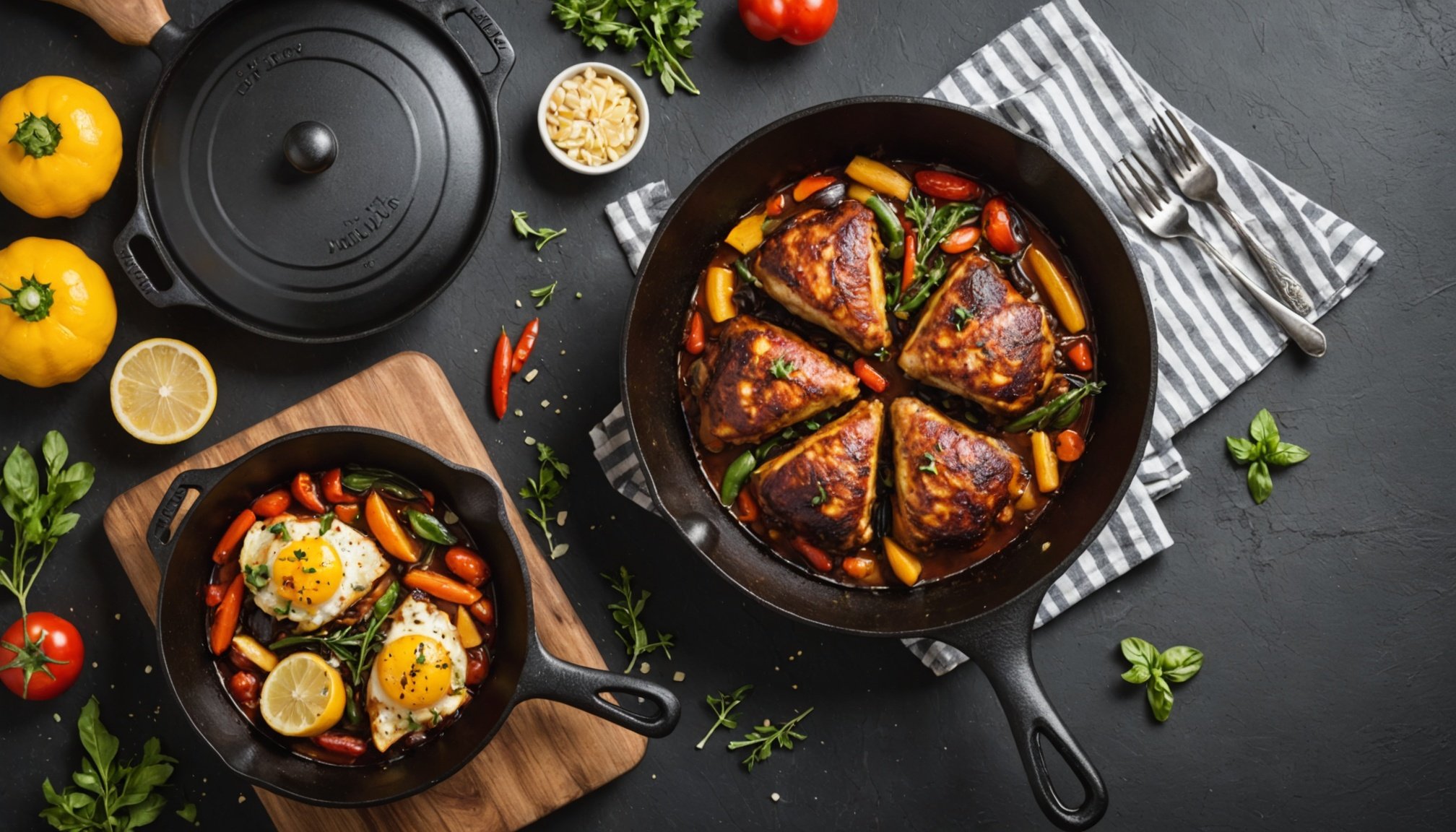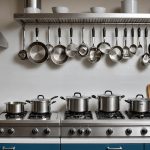When it comes to choosing cookware, two of the most popular materials are cast iron and stainless steel. Each has its own set of benefits, but today we will delve deeper into the advantages of cast iron cookware. Many home chefs and culinary enthusiasts prefer cast iron for its durability, heat retention, and versatility. In this article, we will explore why you might want to consider incorporating cast iron into your cooking routine over stainless steel.
Durability and Longevity
One of the most significant advantages of cast iron cookware is its durability. Unlike stainless steel, which can warp or become discolored over time, cast iron is known for its resilience and ability to withstand high temperatures. When properly cared for, cast iron pots and pans can last for generations. They actually improve with age, developing a natural non-stick coating through seasoning.
Also to discover : What is the importance of using a kitchen thermometer for baking and cooking meat?
Stainless steel, while it does not rust easily, can experience scratches and dents that diminish its appearance and functionality. Some stainless steel cookware may also have coatings that can chip away after extended use, making cast iron a more reliable choice for frequent use.
Moreover, cast iron’s robust construction means it can be used on various heat sources, including gas, electric, and even open flames. This versatility allows you to transition seamlessly from stovetop to oven without worrying about damaging your cookware. In outdoor settings, cast iron is perfect for grilling or campfire cooking, showcasing its ability to withstand harsh conditions.
This might interest you : Top Dishwasher Features to Safely Sanitize Baby Bottles for Your Little One
In summary, if you value durability in your kitchen tools, cast iron cookware stands out as a superior choice. Its ability to hold up against the test of time and usage gives it an edge over stainless steel.
Superior Heat Retention and Distribution
Another compelling reason to choose cast iron cookware is its exceptional heat retention and distribution properties. Cast iron is renowned for its ability to heat evenly and maintain that heat, which is essential for many cooking techniques.
When you cook with stainless steel, you may notice that it heats up quickly but does not retain heat as well. This means that once you add food to a stainless steel pan, the temperature can drop significantly, leading to uneven cooking results. Cast iron, on the other hand, provides a steady heat source, allowing for consistent cooking performance.
This feature is particularly beneficial when searing meats, baking, or simmering sauces. The even heat distribution helps to develop flavors and textures that are often sought after in culinary applications. For example, when frying, cast iron can maintain the oil temperature, resulting in perfectly crispy food without the risk of burning.
Moreover, cast iron retains heat long after you have removed it from the heat source. This means that if you are making a dish that needs to stay warm for a while, cast iron can help keep it at the ideal serving temperature. This is not only convenient but also enhances the overall dining experience.
In conclusion, if you are looking for cookware that provides superior heat retention and distribution, cast iron is the way to go. Its ability to maintain consistent temperatures enhances your cooking results and can elevate your culinary skills.
Natural Non-Stick Properties
Many home cooks appreciate the natural non-stick properties of cast iron cookware. When seasoned properly, cast iron pans develop a non-stick surface that rivals that of many modern non-stick coatings. This is particularly advantageous for cooking delicate foods such as eggs or pancakes, which can easily stick to less forgiving surfaces.
Unlike stainless steel, which often requires the use of oils or fats to prevent sticking, cast iron allows you to cook with less fat while still achieving excellent results. This can lead to healthier meals and less hassle in the kitchen. Additionally, when you use cast iron, you can avoid the potential health concerns associated with certain non-stick coatings that may release toxic substances when overheated.
To maintain and enhance the non-stick properties of your cast iron cookware, it is essential to season it regularly. This simple process involves applying a thin layer of oil and heating it, creating a natural coating that improves with each use. Over time, as you continue to cook with your cast iron, the non-stick surface will become more efficient, making cooking and cleanup easier.
In contrast, stainless steel pans can be notorious for food sticking, particularly if not preheated correctly or if the food is added too soon. This often results in frustrating cooking experiences and can lead to the loss of valuable food. By choosing cast iron, you can enjoy the benefits of a natural non-stick surface, making your cooking experience more enjoyable and successful.
Therefore, if you want to embrace healthy cooking without the concerns associated with synthetic non-stick coatings, cast iron cookware is a wise choice.
Versatility in Cooking Methods
Cast iron cookware is incredibly versatile, making it suitable for a wide array of cooking methods. Whether you prefer stovetop cooking, baking, or even frying, cast iron can handle it all. This adaptability is one of the key reasons it remains a favorite among home cooks and professional chefs alike.
You can use cast iron skillets for sautéing vegetables, baking cornbread in the oven, or slow-cooking stews on the stove. The ability to go from the stovetop to the oven without transferring your food to another pot simplifies the cooking process. This versatility allows you to prepare a variety of dishes without the need for multiple pots and pans.
Stainless steel cookware, while effective for certain tasks, often requires specific adjustments. For example, while it is excellent for boiling or steaming, it may not perform as well in the oven compared to cast iron. Attempting to use stainless steel for baking can lead to disappointing results, as it does not retain heat as effectively.
Furthermore, cast iron can be used for grilling or in the outdoor cooking environment, providing an excellent option for those who enjoy cooking over an open flame. The ability to place cast iron directly over coals or on a grill makes it a favorite for camping and outdoor gatherings.
In summary, the versatility of cast iron cookware makes it an essential addition to any kitchen. If you are looking for cookware that can handle a variety of cooking methods, cast iron is a practical and effective option.
In conclusion, cast iron cookware offers several advantages over stainless steel that make it a worthy investment for any home cook. From its unmatched durability and heat retention to its natural non-stick properties and versatility, cast iron provides a cooking experience that enhances both flavor and preparation.
By choosing cast iron, you are opting for longevity, efficiency, and healthier cooking options. Whether you are a beginner or a seasoned chef, incorporating cast iron into your kitchen arsenal can elevate your cooking and bring joy to culinary adventures. Embrace the benefits of cast iron and discover the difference it can make in your cooking routine.











